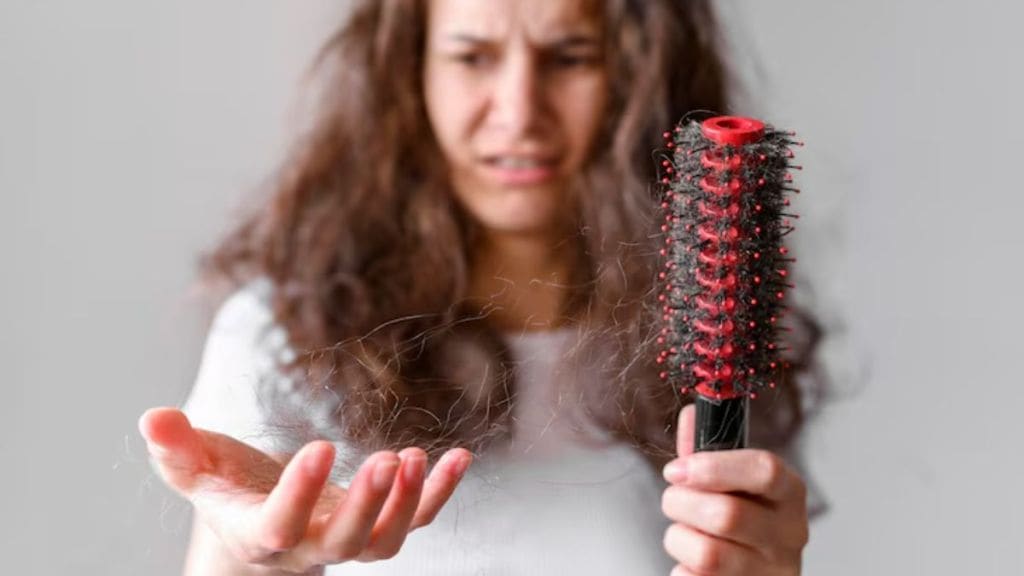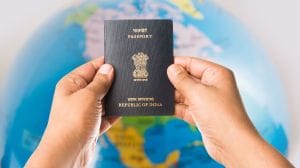The monsoon may bring much‑needed relief from the summer heat, but for many, it also brings a frustrating side effect, which we all deal with – excessive hairfall. Dermatologists say the season’s high humidity creates the perfect environment for hair troubles, from frizz and split ends to dandruff and fungal infections.
“During monsoon, moisture in the air increases, which leads to frizz and makes the scalp more prone to fungal infections. This can result in dandruff, breakage of hair follicles, and eventually hairfall,” explains Dr. Sheena Kapoor, Consultant, Dermatology, Kokilaben Dhirubhai Ambani Hospital, Indore.
With so many hair concerns peaking in this season, a common question arises: how often should you shampoo to keep your scalp clean without damaging your strands?
How often should you shampoo to reduce hairfall
According to Dr. Kapoor, the answer lies in balance. “You should ideally wash your hair twice or thrice a week during monsoon. Excessive washing strips away the scalp’s natural oils, making hair more frizzy and prone to breakage,” she advises.
Using the right kind of shampoo is equally important. Harsh chemical‑laden products can worsen dryness and damage. “Opt for a sulphate‑ and paraben‑free shampoo along with a mild conditioner to maintain hair health,” Dr. Kapoor recommends.
Pre‑wash care matters
Oil massages, a tried-and-true Indian remedy, remain beneficial in the rainy season. “Use coconut oil once or twice a week before washing your hair. Apply it an hour before your wash, it nourishes hair follicles and reduces breakage,” Dr. Kapoor suggests.
She also warns against excessive use of chemical hair dyes and heating tools like straighteners and curlers, which can further weaken hair during this vulnerable season.
Drying and combing tips
How you handle your hair post‑wash is just as crucial. “Never comb your hair when it’s wet. Wet strands are fragile and break easily. Always wait until hair is dry, and use a wide‑tooth comb to detangle,” she advises.
When it comes to water temperature, moderation is key. “Use lukewarm water instead of very hot or cold water. Also, limit your shower to 5–10 minutes, as prolonged exposure can strip away your hair’s natural protective barrier,” says Dr. Kapoor.
Don’t ignore scalp infections
One common monsoon problem is dandruff, often linked to fungal infections thriving in the humid weather. “If you notice dandruff or itching, don’t rely on home remedies. Consult a dermatologist and use a good antifungal shampoo prescribed for your condition,” Dr. Kapoor explains.
The role of diet in hair health
Beyond external care, nutrition plays a vital role. “Include protein‑rich foods like eggs, fish, paneer, soybean, and sprouts, along with nuts such as almonds, cashews, and walnuts. Protein is essential for strong, healthy hair,” Dr. Kapoor recommends.
She adds that maintaining a healthy lifestyle with adequate sleep and hydration further supports hair growth and reduces seasonal hairfall.
The monsoon may be harsh on your hair, but simple steps — from shampooing two to three times a week with gentle products, nourishing with coconut oil, avoiding heat styling, and following a protein‑rich diet — can go a long way in reducing hairfall.
“With the right care and timely intervention, you can enjoy the rains without worrying about losing your hair,” Dr. Kapoor said.









